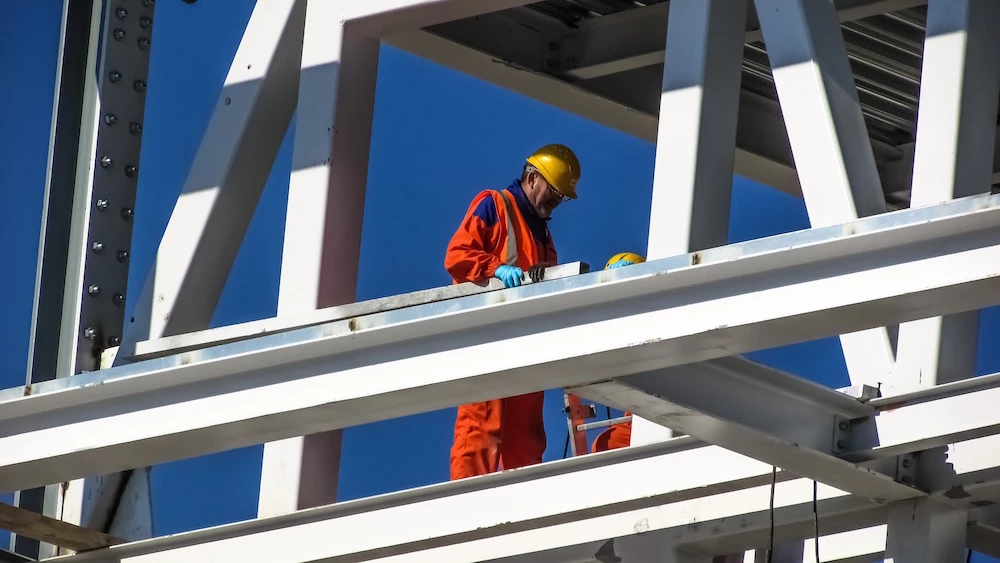
Brexit and politics squeeze Yorkshire & Humber Q2 construction activity
Construction industry workloads in Yorkshire and the Humber slowed across most sectors during Q2 2017, according to new data.
The latest Construction and Infrastructure Market Survey from the Royal Institution of Chartered Surveyors (RICS) found that one quarter of the region’s construction professionals reported an increase in workload between April and June.
In comparison, 28% of those surveyed in Q1 reported a rise.
According to RICS, there is anecdotal evidence from respondents to suggest that Brexit uncertainty and political turmoil following the June General Election affected investment decisions during the period.
A fall in activity was reported across all sectors apart from private commercial, where 42% of contributors saw a rise. In Q1, that figure was 29%.
Just 12% of respondents reported a rise in public housing activity in Q2 (21% in Q1), while 24% saw an uptick in private housing schemes (38% in Q1).
Activity on infrastructure schemes likewise fell in the second quarter, with only 18% of those surveyed seeing a rise in activity (26% in Q1). Activity also failed to pick up pace during Q2 in the industrial sector, where 21% of respondents reported an increase (25% in Q1).
Optimism is also down, as 40% of respondents anticipate workloads to rise over the next 12 months, compared to 48% in Q1.
Developer Keepmoat Regeneration’s operations director, Mark Kearney, said: “Unfortunately, the UK’s construction skills gap isn’t a new problem.
“The situation is set to worsen over the next five years, as a large proportion of qualified professionals and tradesmen are now approaching retirement age. As these professionals prepare to leave the industry - with very few of them having trained apprentices – replenishing their experience and bridging the talent gap is now of utmost importance.”
He continued: “As an industry, we need to promote the positives of working in this highly attractive sector to the next generation of workers.
“By ensuring organisations, the government, schools and businesses are providing the training opportunities needed to encourage young talent into the industry, the construction sector can begin to build the bridges it needs to overcome the skills shortage.”
Andy Hirst, fellow of RICS and associate director at project management consultancy Faithful+Gould, commented: “The recent referendum to leave the EU caused a hiatus in investment for many of our private clients, and is likely to have further significant effects on investment due to currency uncertainty and the UK economic picture.”
RICS senior economist Jeff Matsu said: “Economic and political uncertainty appear to be weighing on sentiment, but all things considered, current conditions and year-ahead workload expectations are holding up rather well, relative to the longer-term trend.
“Given the ongoing nature of Brexit negotiations, it remains to be seen what impact this will have on financial conditions or the availability of skilled labour to the industry.”
Looking to promote your product/service to SME businesses in your region? Find out how Bdaily can help →
Enjoy the read? Get Bdaily delivered.
Sign up to receive our popular Yorkshire & The Humber morning email for free.








 Raising the bar to boost North East growth
Raising the bar to boost North East growth
 Navigating the messy middle of business growth
Navigating the messy middle of business growth
 We must make it easier to hire young people
We must make it easier to hire young people
 Why community-based care is key to NHS' future
Why community-based care is key to NHS' future
 Culture, confidence and creativity in the North East
Culture, confidence and creativity in the North East
 Putting in the groundwork to boost skills
Putting in the groundwork to boost skills
 £100,000 milestone drives forward STEM work
£100,000 milestone drives forward STEM work
 Restoring confidence for the economic road ahead
Restoring confidence for the economic road ahead
 Ready to scale? Buy-and-build offers opportunity
Ready to scale? Buy-and-build offers opportunity
 When will our regional economy grow?
When will our regional economy grow?
 Creating a thriving North East construction sector
Creating a thriving North East construction sector
 Why investors are still backing the North East
Why investors are still backing the North East